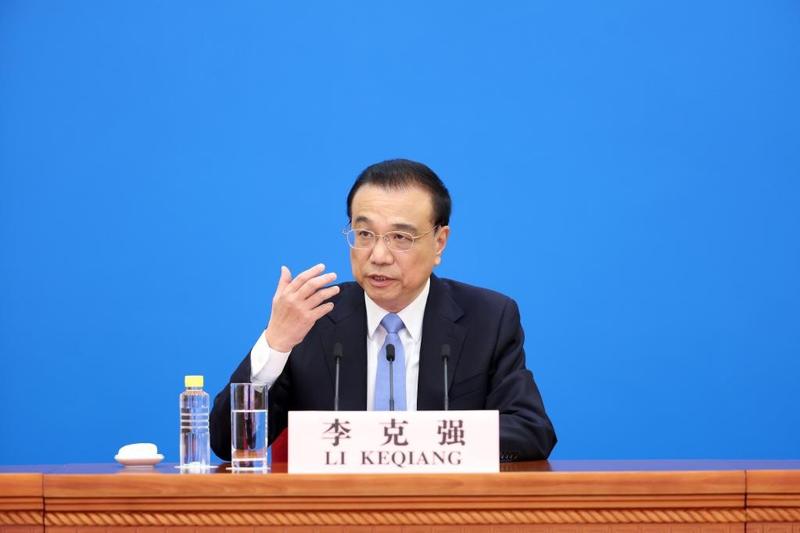 Chinese Premier Li Keqiang meets the press via video link after the closing of the fifth session of the 13th National People's Congress (NPC) at the Great Hall of the People in Beijing, China, March 11, 2022. (DING HAITAO / XINHUA)
Chinese Premier Li Keqiang meets the press via video link after the closing of the fifth session of the 13th National People's Congress (NPC) at the Great Hall of the People in Beijing, China, March 11, 2022. (DING HAITAO / XINHUA)
BEIJING – Chinese Premier Li Keqiang said on Friday China's opening-up policy will not change "just as the course of the Yangtze and Yellow rivers will not be reversed."
No matter how the international environment may change, China will keep the course of wider openness, Li told a press conference after the closing of the fifth session of the 13th National People's Congress.
"If there will be any change, the change will be conducive to China's greater openness to international exchanges, trade and investment," the premier said. "Anything that is conducive to expanding high-level opening-up, we will go for it."
READ MORE: Highlights from Premier Li's news conference
China's economy has deeply integrated into the world, Li said. Imports and exports in goods contribute to more than one third of China's gross domestic product, and the country has remained the world's second-largest import market for 10 consecutive years. China has also been the largest trader in goods over the past five years.
This year, we will step up the implementation of macro policies, and focus our fiscal and monetary policies on achieving employment targets.
Li Keqiang, Premier, China
As the economy is still climbing up the industrial chain, China has tremendous potential and broad space for the growth of all types of investment, the premier said, promising a level playing field for all types of businesses, no matter homegrown or foreign-funded.
As the Regional Comprehensive Economic Partnership agreement, the world's largest trade deal, has come into effect, China will seize the opportunity to push forward free trade and keep itself a popular destination for foreign investment, he said.
As more than 40 years of opening-up has brought mutual benefits to China and the world, Li described the policy as a "door of opportunity." China will not and must not close it, he added.
Improving business environment
China has streamlined administration, delegated power, improved regulation and upgraded services to improve its business environment, said the Premier.
Over 1,000 items for administrative approval had been cancelled or delegated to lower-level authorities, and all items for non-administrative approval had been eliminated, he said.
With the business environment constantly improving, the number of market entities in China has reached 150 million, up by 100 million from a decade ago, Li said, adding that the majority of them are private companies.
China will strengthen supervision over sectors that are closely related to the health and interests of the people, and will improve oversight and regulation of new business models and forms to enable all market entities to compete and develop in a fair and just environment, he said.
Maximum employment
China is able to achieve its potential economic growth as long as it can realize maximum employment, according to Premier Li.
"This year, we will step up the implementation of macro policies, and focus our fiscal and monetary policies on achieving employment targets.”
In 2022, China will see a high increase of new urban job seekers into the labor force, totaling around 16 million people, while the number of college graduates will reach an all-time high of 10.76 million, Li told the media.
ALSO READ: Central govt fully supports HKSAR's COVID-19 fight, says Li
He called for supportive measures for new job seekers such as providing more training programs, adopting a market-based approach in enhancing employment, and facilitating the development of new technologies and business modes.
He stressed flexible employment, referring to new employment forms currently covering more than 200 million people in the country.
Improved policies are needed to protect labor rights and interests and strengthen social security for people engaged in flexible employment, Li added.


